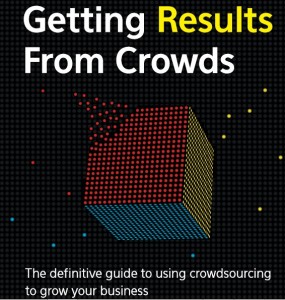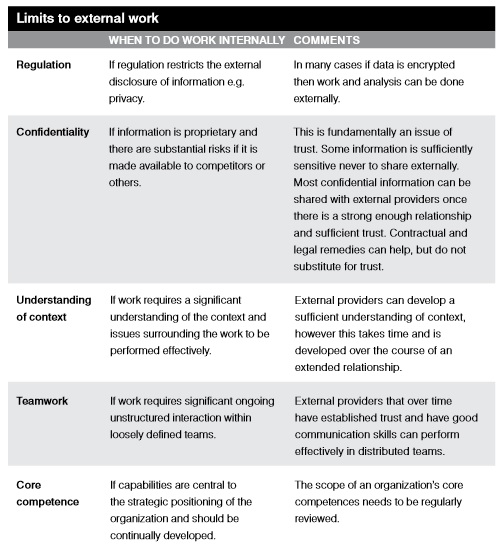“The potential of using crowds continues to expand as the talent pool broadens and platforms evolve. However this doesn’t mean that tapping global providers is always the best approach. Organizations need to consider when they should use crowds, and how best to go about finding the right kinds of providers for the tasks required.”
- 1937 Ronald Coase published ‘The Nature of the Firm’ which describes why organisations exist.
- Coase pointed out that the cost of internal transactions is often lower than those for external transactions. When you go outside the firm, you have to find providers, assess offerings, develop trust, and manage the relationship. For many tasks it is more efficient to get tasks done internally than to go outside. This gives rise to large complex organizations.
- However, in a connected world transaction costs are greatly reduced.
- It has become far easier to find suppliers, compare them, and build effective working relationships. The rise of crowdsourcing is one of the most important examples of this shift
- Therefore is it worth keeping work internal or going external? = This is in part has to be decided based on the nature of the task. Can the task actually be performed by someone external of the organisation?
Ultimately, there are a number of issues that constrain the tasks and functions that can be done externally. Such as:
 Another important question a service must ask itself is does it require talented individuals to complete the task? Unleashing a task to all, with the vast majority without the necessary skills to complete the task, is not the most efficient way to solve a conundrum. If the task requires specialist knowledge then certain steps need to be taken so that those with that specific expertise can do the task.
Another important question a service must ask itself is does it require talented individuals to complete the task? Unleashing a task to all, with the vast majority without the necessary skills to complete the task, is not the most efficient way to solve a conundrum. If the task requires specialist knowledge then certain steps need to be taken so that those with that specific expertise can do the task.
A service may also need to think about the IP risks when using crowds. Not only do you not want to share your idea with potentially thousands of people but you also don’t want to be caught out by IP infringement yourselves. There are certain legal steps you can take to avoid this situation.
How this relates to Be Seated?
As the nature of our task is quite simple Be Seated can easily reach out for contributors globally. Our aim is to first to begin with a service to review UK venues (so local reviewers seems to make sense) but our idea has global aspirations and we would not want to restrict those who have attended but are not local to the UK to be forbidden from contributing. It is also entirely logical to not have internal reviewers. We have researched crowds and their trustworthiness along with their likelihood that intrinsic motivations will keep driving them to continue reviewing. There appear to be no clear boundaries or limits why we must use internal reviewers so our idea to utilise the crowd seems feasible and well-suited.
Reference
Dawson, R. and Bynghall, S. (2011). Getting results from crowds. Sydney: Advanced Human Technologies.




